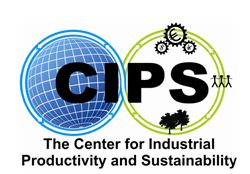Business & Zero Waste
Zero Waste is one of the pillars of sustainability. It is impossible to be sustainable as long as what we discard cannot be the resource of another process without endangering health or the environment.
 This is why Zero Waste concept is good for both people –less pollution- and the business sector –less inefficiency and costs-.
This is why Zero Waste concept is good for both people –less pollution- and the business sector –less inefficiency and costs-.
The book “New Standards for Long Term Business Survival” from J. Scott explains why waste doesn’t make any sense from a business perspective. Using several examples and reviewing the recent history of the relation between companies and waste, Scott explains how the business world has changed and is continuing to change in the direction of Zero Waste.
It explains the great work of Walter Stahel regarding the “closed-loop economy” and the two ways to achieve it; either by reusing, repairing or re-manufacturing products and their materials, which facilitates job creation and decreases virgin material usage (by re-using molecules) or by optimizing the profitability of products by converting them into a service so as to keep the product’s materials in the hands of the manufacturer in order to lower raw material and production costs. Safechem, Michelin or Interface are successful example of this second option of selling a service instead of a commodity (selling square meters of cleaning, the distance a tire can travel or the meters of carpet-covered floors).
This book and other from J.Scott can be downloaded for free from our ZW library.
From this book we extract 6 Key Teaching and Learning Points
1- Waste elimination and resource maximization are two sides of the same coin. One cannot occur without the other.
2- Waste elimination is an on-going process. There is no finish line.
3- Waste creation does not equate with freedom nor is it a basic human right: the world is interconnected and has limited resources –and waste impedes the well-being and security of others.
4- Waste is a financial burden to businesses, customers, and local, national and international communities.
5- Spending money on lawyers and lobbyists to fight against higher efficiency standards or for the right to create waste is counterproductive, self-defeating, costly and pointless.
6- Taxing waste has the capacity to serve two purposes: (1) the money collected can fund and support infrastructure building, and, (2) businesses and industries would be encouraged to be less wasteful.Waste elimination and resource maximization are two sides of the same coin. One cannot occur without the other.